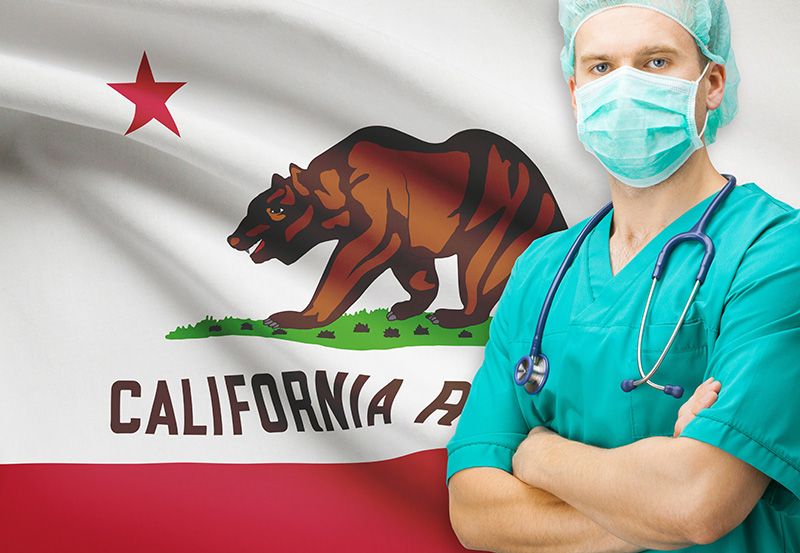Protecting Health Care – California Keeping Medi-Cal Enrollees Insured
In California, the Department of Health Care Services (DHCS) has been working to ensure that all eligible Californians have access to health care coverage through the Medi-Cal program. However, the redetermination process, which is required by federal law to verify the eligibility of individuals enrolled in Medi-Cal, can be complex and confusing, leading to many losing their coverage.
In a media briefing held by Ethnic Media Services, Aug. 15, leaders from healthcare nonprofits shared their insights on the impact of redetermination on various communities and the steps being taken to address the issue.
Speakers

Redetermination is the process by which the DHCS verifies the eligibility of individuals enrolled in Medi-Cal, California’s Medicaid program. As a federally backed process, it’s a requirement so that only those eligible get the benefits. However, redetermination can be complex and confusing, which leaves many to lose out.
Yingjia Huang, a representative from the DHCS, emphasized the importance of redetermination in ensuring that only eligible individuals receive benefits. “Redetermination is here to stay,” she said, “It’s a federal requirement, and it’s important that we do it to ensure that only eligible individuals receive benefits.”
However, Huang acknowledged that it can be challenging for many, particularly marginalized communities. “We know that the redetermination process can be difficult for many people, especially those who are low-income, have limited English proficiency, or have disabilities,” she said, “That’s why we’re working to make the process as easy as possible and to provide support to those who need it.”
Mayra E Alvarez, President of The Children’s Partnership, echoed Huang’s sentiments, emphasizing the importance of providing support to individuals going through the redetermination process. “Whether it’s in person, on the phone, or on the computer, what matters is that we try and give them the support that they need to walk through that process so that they can keep or get their coverage,” she said.
Alvarez also highlighted the role of ethnic media in closing the information gap on redetermination. “What can ethnic media do to help close the information gap on redetermination?” asked Sandy Close, Executive Director of Ethnic Media Services. “What would be the headline that you want us to write that would most powerfully convey what you feel we need to convey to audiences around the medical redetermination?”
Alvarez responded by emphasizing the importance of providing clear and accurate information for going through the redetermination process. “I think the headline message should be that redetermination is an opportunity to keep your coverage,” she said. “It’s important that people understand that redetermination is not a punishment, but rather an opportunity to ensure that they continue to receivethe healthcare coverage they need.”
Rosario Arreola Pro, Executive Director of the California Rural Indian Health Board, also emphasized the importance of clear communication in the redetermination process. “I would say the headline should be ‘Don’t leave it on the table,'” she said. “For our media partners, showing someone even opening that yellow envelope and looking at it can be a powerful way to convey the importance of the redetermination process.”
Pro also highlighted the unique challenges faced by rural communities in the redetermination process. “In rural communities, there may be limited access to technology or transportation, which can make it difficult for individuals to complete the redetermination process,” she said, “that’s why we’re working to provide support to these communities and ensure that they have the resources they need to complete the process.”
The impact of redetermination on marginalized communities was a recurring theme throughout the briefing. The experts emphasized low-income households, people with disabilities, and those with a language barrier are .
“We know that the redetermination process can be particularly challenging for individuals with disabilities,” said Huang, “that’s why we’re working to provide support to these individuals and ensure that they have the resources they need to complete the process.”
Alvarez brought to attention how this would have a great effect on children. “We know that children and families are particularly vulnerable to losing coverage during the redetermination process,” she said, “that’s why we’re working to ensure that families have the support they need to complete the process and keep their coverage.”
The speakers also emphasized the importance of outreach and education of the redetermination process and have the resources they need to complete it. “We’re working to provide outreach and education to individuals and communities across the state,” said Huang, “we want to ensure that everyone understands the redetermination process and has the resources they need to complete it.”
Overall, the briefing highlighted the importance of ensuring continuous coverage for all eligible Californians. Confusing and challenging as it can be, dealing with the process can be done with the support and resources, ensuring that they can keep their coverage. Through outreach, education, and collaboration, the DHCS and healthcare nonprofits are racing to help all those in need of healthcare.


